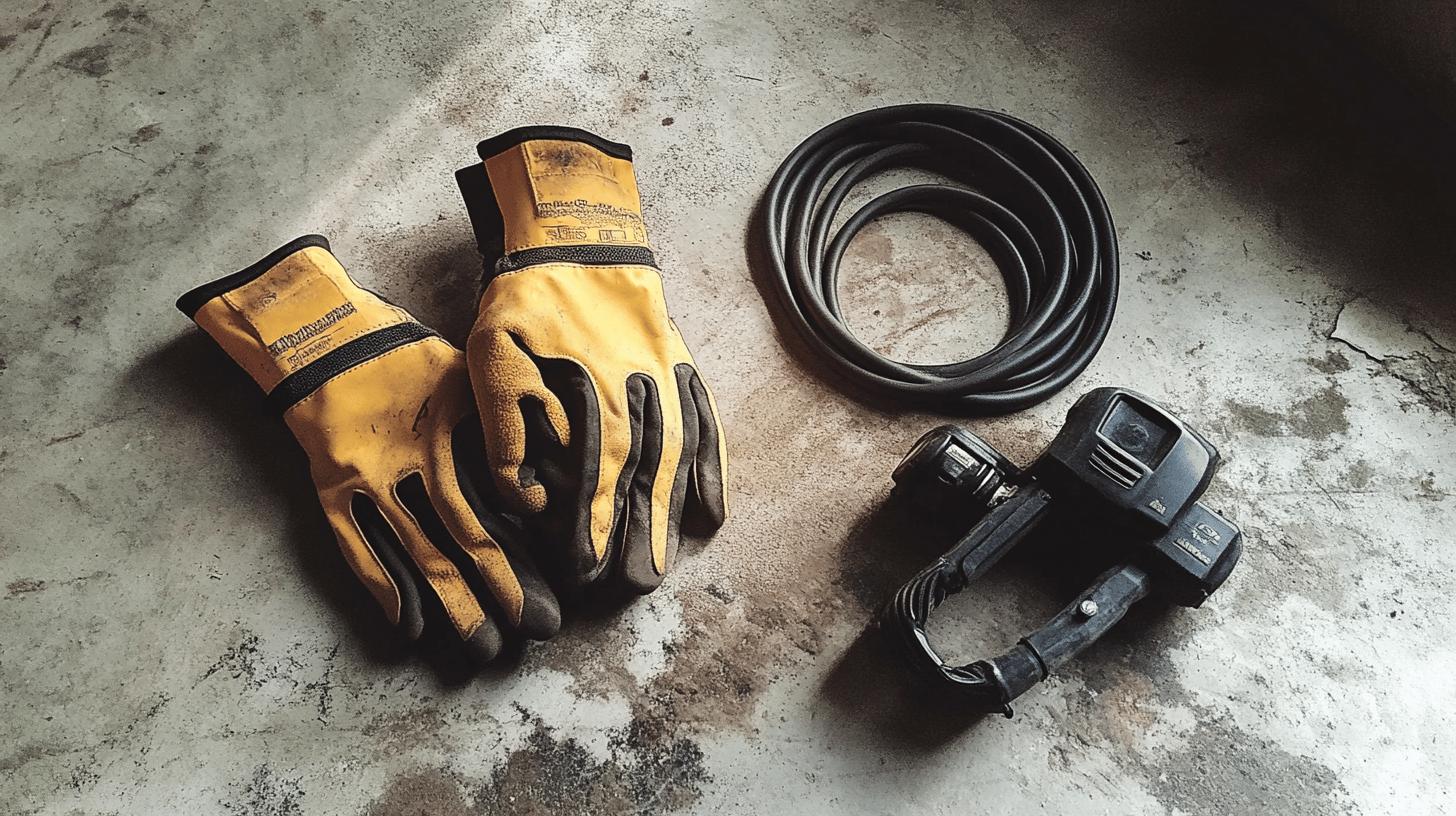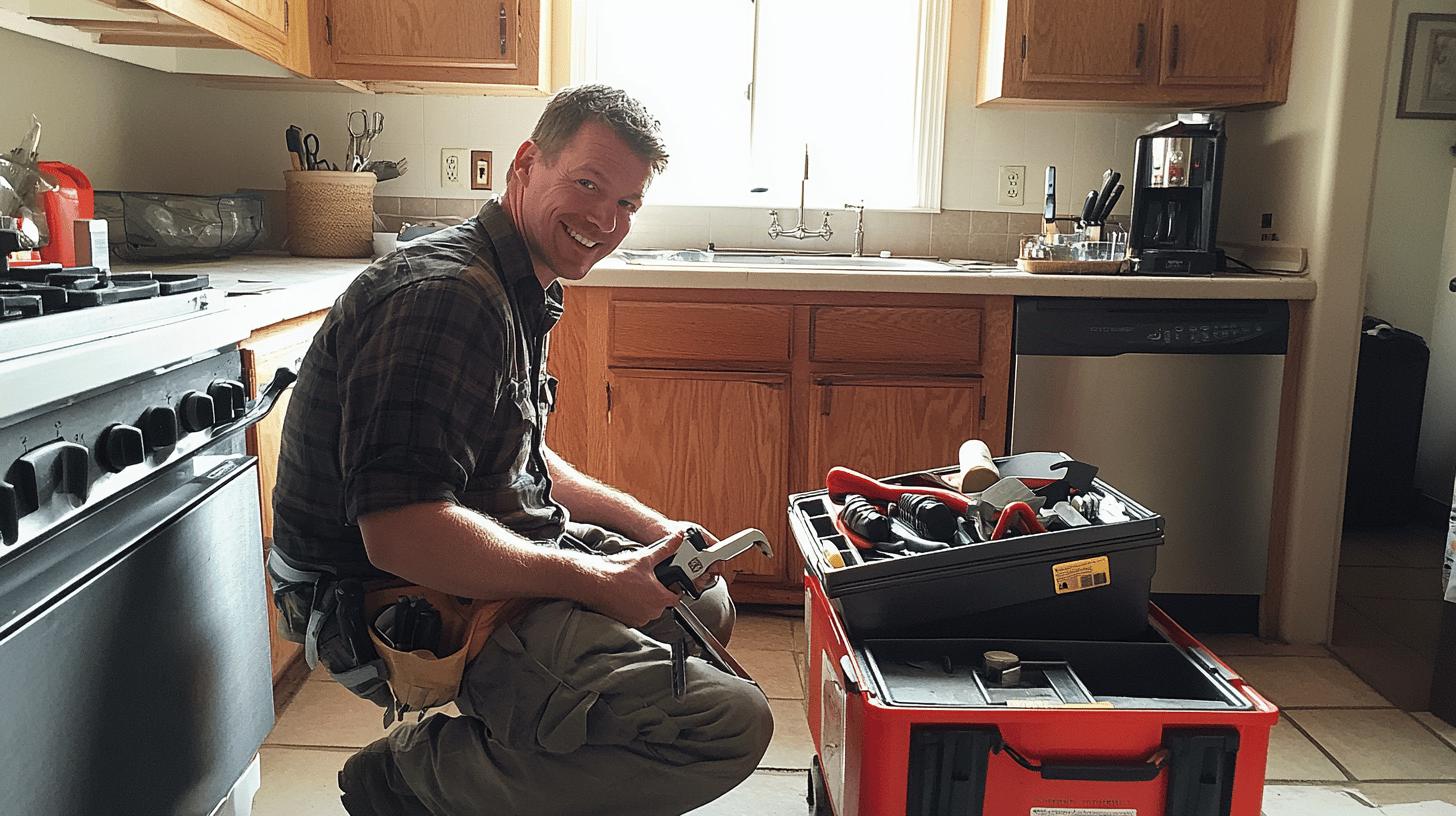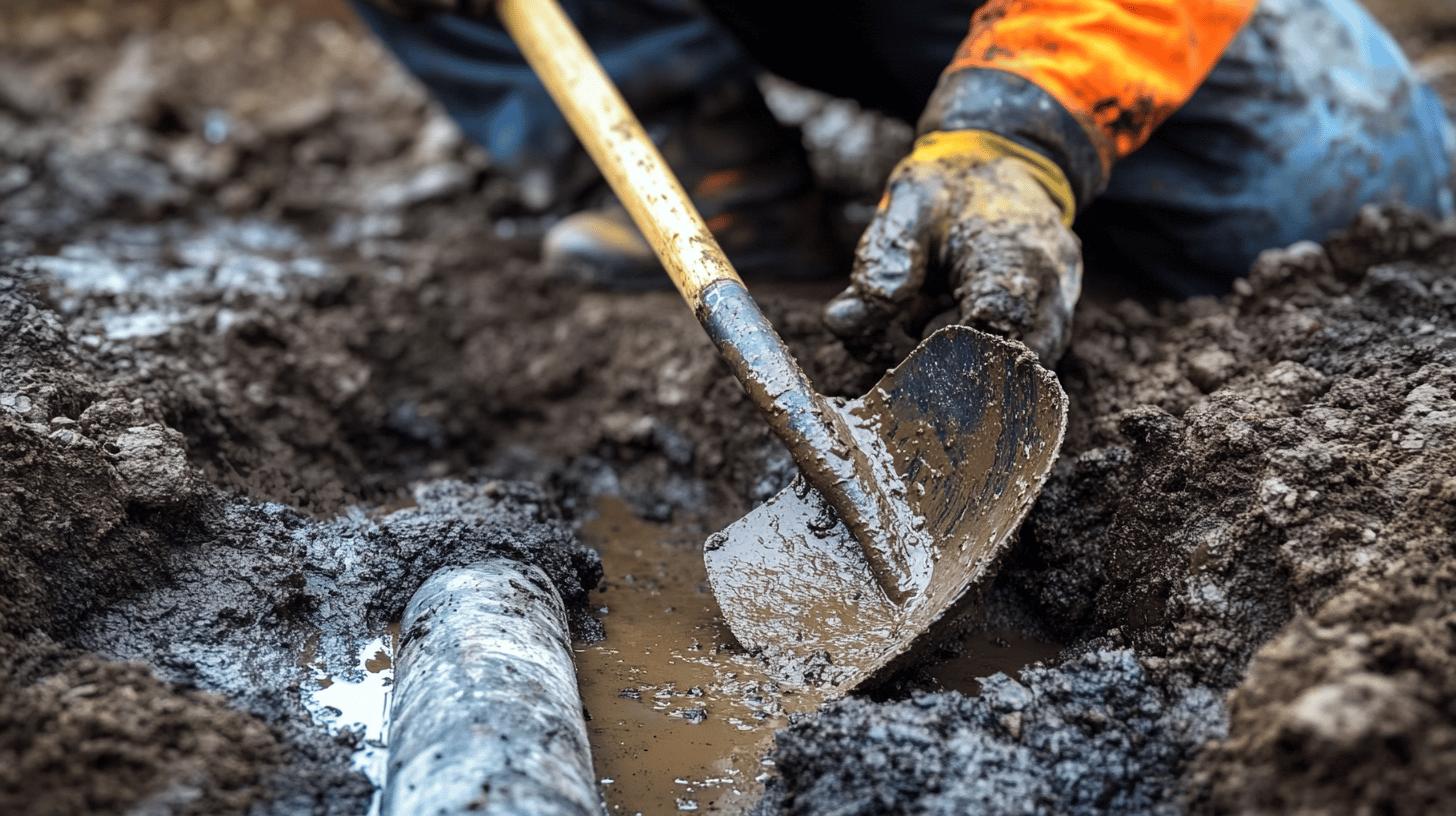TL;DR:
- Signs of blockage: standing water, slow drainage, soggy yard.
- Common causes: tree roots, debris buildup, structural damage.
- Tools for cleaning: drain snake, hydro jet, boroscope camera; wear safety gloves and masks.
- DIY methods:
- Garden Hose: Good for minor blockages.
- Plumber’s Snake: Effective for small/medium clogs.
- Hydro Jetting: Highly effective for severe clogs (often requires professionals).
- Baking Soda & Vinegar: Ideal for minor clogs.
- Call professionals for complex or severe blockages, structural damage, or persistent drainage issues.
- Preventive maintenance: inspect pipes, avoid non-biodegradable items, schedule professional cleanings every 1-2 years.
Have you ever spotted standing water in your yard or noticed soggy patches near your foundation? These subtle signs could indicate a bigger problem: a blocked buried drain pipe. Keeping these drains clean is essential to protect your home from damage. This guide covers effective ways to clear blockages, including DIY methods and when it’s time to call in a pro. Get the tools and knowledge you need to keep your drain pipes clear and avoid costly repairs.
Identifying Blockages in Buried Drain Pipes
Spotting a clogged buried drain pipe early can save you from bigger problems down the road. Look out for signs like standing water near your foundation or overly soggy spots in the yard, as they may indicate a blockage. Slow drainage in sinks or toilets can also point to an issue with your pipes. Catching these clues early gives you a chance to fix the problem before it causes more damage.
- Tree Roots: Roots can enter pipes through tiny cracks, causing blockages.
- Debris Buildup: Leaves, dirt, and grease can build up and block flow.
- Structural Damage: Cracks, collapses, or misaligned joints often lead to clogs due to aging or shifting soil.
Recognizing these problems early is key to avoiding serious damage to your drainage system. If drainage issues are widespread, it could point to a clog in the main sewer line, while localized problems typically indicate a blockage in a specific pipe. Identifying the issue quickly allows for prompt fixes, which can minimize costly repairs and prevent further damage to your property. Taking action early helps protect your home and extends the life of your drainage system.
Essential Tools and Safety Tips for Cleaning Buried Drain Pipes

Having the right tools is crucial for effectively cleaning buried drain pipes. A drain snake is great for tackling stubborn clogs in both indoor and outdoor pipes. For more difficult blockages, a hydro jet attachment can be used, which blasts high-pressure water to thoroughly clear out debris. Additionally, a borescope camera allows you to inspect the inside of the pipes before and after cleaning, helping to pinpoint blockages and assess whether the cleaning was successful.
- Wear safety gloves to protect your hands from sharp debris and harmful substances.
- Use a safety mask to avoid inhaling potentially hazardous materials.
- Ensure the work area is clear of obstacles to prevent injuries.
- Know the location of cables or gas lines to avoid accidental damage.
- Maintain secure footing to avoid falls on wet or slippery surfaces.
Following safety precautions is key to preventing injuries and damage to your pipes. Wearing gloves and masks protects you from hazardous materials and potential harm. Being aware of your surroundings, especially utility lines, helps avoid accidental damage that could disrupt services. By sticking to these safety guidelines, you’ll ensure a safer, more efficient cleaning process, keeping both you and your drainage system protected.
DIY Methods for Cleaning Buried Drain Pipes
Cleaning buried drain pipes yourself can be effective using different methods, depending on the severity of the clog. For minor blockages, you can start by using a garden hose to apply water pressure. If the clog persists, a plumber’s snake (or auger) can help break up stubborn debris. This method is simple and effective for most small to medium-sized clogs.
For tougher blockages, hydro jetting is a powerful option. It uses high-pressure water to clear out debris and buildup in pipes. While this method is effective, it’s often best left to professionals due to its complexity and the risk of damaging the pipes. Hydro jetting is ideal for severe clogs that other DIY methods might not be able to resolve.
A classic natural solution like baking soda and vinegar can also work well. Pouring baking soda followed by vinegar into the pipe creates a chemical reaction that helps break down mild clogs. It’s an eco-friendly, simple alternative to chemical cleaners and works great for routine maintenance or minor blockages. Each of these methods offers a way to clear your pipes, with some more suited to certain types of clogs than others.
| Method | Effectiveness |
|---|---|
| Garden Hose | Good for minor blockages |
| Plumber’s Snake | Effective for small to medium clogs |
| Hydro Jetting | Highly effective, best for severe clogs |
| Baking Soda & Vinegar | Ideal for minor clogs, natural solution |
When to Call a Professional Plumber

DIY methods are useful for minor blockages, but they have their limits. While tools like a garden hose or plumber’s snake can clear simple clogs, they may struggle with deep or complex blockages. If the issue is severe, these methods might not resolve the problem and could waste time. In some cases, DIY attempts might even make things worse, potentially causing further damage to the pipes. When dealing with persistent or more complicated drainage issues, it’s often best to call in a professional to avoid frustration and costly repairs.
- Complex blockages resist standard unclogging techniques.
- Structural pipe damage, like cracks or collapses.
- Persistent drainage issues suggest a possible main sewer line clog.
Hiring professional plumbing services comes with key advantages. Experts use advanced techniques like hydro jetting and Picote milling machines to tackle tough clogs effectively. These methods clear blockages without damaging your pipes, preserving your drainage system. Professionals also bring specialized tools and expertise, ensuring thorough cleaning and reducing the likelihood of future issues. By trusting skilled plumbers, you protect your property and ensure the job is done correctly and efficiently.
Preventive Maintenance for Buried Drain Pipes
Hiring professional plumbing services offers several benefits. Experts use advanced techniques like hydro jetting and Picote milling machines to handle tough clogs efficiently. These methods clear blockages while protecting your pipes, ensuring your drainage system stays intact. Professionals also bring specialized tools and knowledge, ensuring thorough cleaning and reducing the chances of recurring problems. By hiring skilled plumbers, you protect your property and guarantee the job is completed correctly and effectively.
- Regularly inspect pipes for early signs of blockages or damage.
- Avoid flushing non-biodegradable items like wipes or grease.
- Clear gutters and downspouts regularly to prevent debris buildup.
- Schedule professional cleaning every one to two years for thorough maintenance.
Sticking to a maintenance schedule is crucial for your drainage system’s health. Regular cleanings and inspections keep pipes clear and functioning properly, reducing the risk of unexpected clogs. Professional check-ups can catch hidden issues that might not be apparent during regular inspections. A proactive maintenance plan helps prevent system failures.
Taking preventive measures also prolongs the life of your drainage system. Avoiding non-biodegradable items and keeping debris out reduces strain on pipes, preventing the buildup that leads to clogs and potential damage. These practices provide peace of mind, ensuring a reliable, well-maintained system that’s less likely to fail.
Final Words
Recognizing the signs of a blocked buried drain pipe and using the right tools for maintenance are essential for keeping your drainage system running smoothly. DIY methods work well for minor clogs, but knowing when to call a professional ensures your system remains durable and efficient.
Regular maintenance helps prevent future issues and can save you both time and money in the long run. By taking a proactive approach to cleaning buried drain pipes, you’re extending the life of your plumbing system and avoiding costly repairs.
Stay on top of maintenance, and enjoy a hassle-free, well-functioning drainage system.
FAQ
How to clean buried drain pipe outside?
Cleaning a buried drain pipe involves using tools like a drain snake or hydro jet to clear debris. Always wear gloves and a mask to protect yourself. If the clog persists, professional help may be required.
How to unclog underground gutter drain pipe?
To unclog an underground gutter drain pipe, you can use a drain snake or hydro jet. Insert the tool into the pipe to break up or flush debris. If unsuccessful, consider hiring a professional.
What are underground gutter drain cleaning services?
Underground gutter drain cleaning services offer professional cleaning using advanced tools like hydro jets and boroscope cameras to clear and inspect drainage issues. These services can handle complex blockages safely and efficiently.
How to clean drain pipes in the bathroom?
Bathroom drain pipes can be cleaned using a plumber’s snake or a mixture of baking soda and vinegar. Pour the mixture into the drain and flush with hot water to clear minor clogs.
What underground drain cleaning tools are useful?
Underground drain cleaning tools include drain snakes, hydro jet attachments, and boroscope cameras. These tools help in removing clogs and inspecting drain pipes effectively.
How do I know if my underground drain is clogged?
Signs of a clogged underground drain include standing water, soggy patches in the yard, and slow draining. These indicate blockage and should be addressed to prevent further issues.
How do I clear my yard drain pipes?
To clear yard drain pipes, use a garden hose or plumber’s snake to dislodge debris. For stubborn clogs, a hydro jet may be required. Ensure the use of safety gear during the process.

